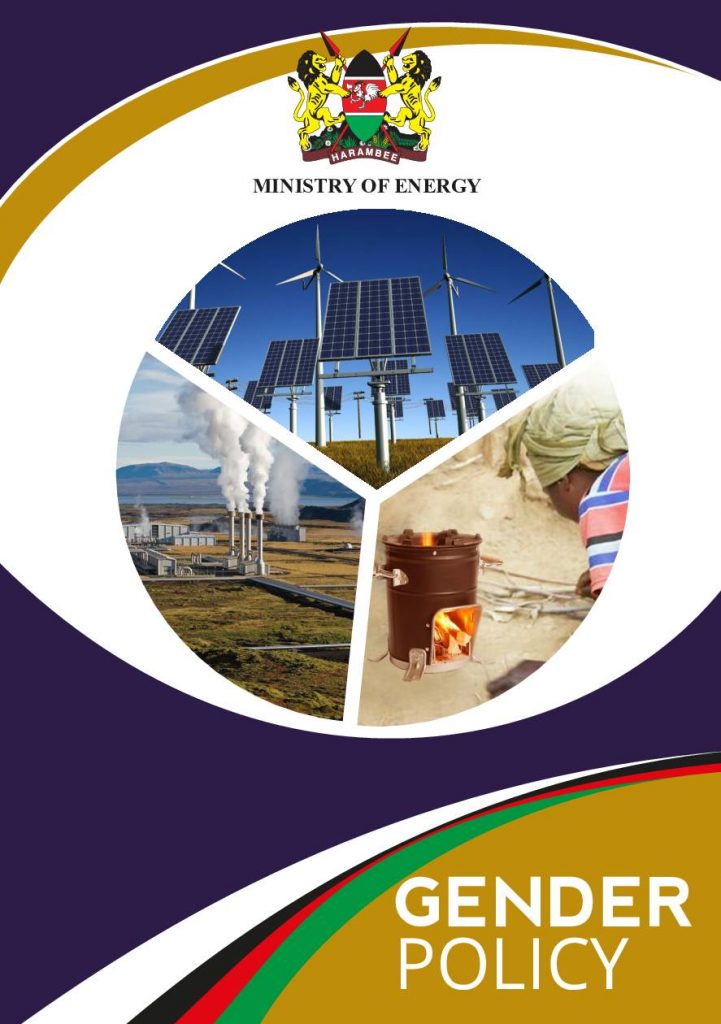Energy is a critical component in the economic growth of any country. The Kenya Vision 2030 identifies energy as one of the enablers of national development. Enhanced access to energy sources improves living conditions through provision of water for industrial and agricultural productivity; better health; education; security; and environmental sustainability. This policy is designed to demonstrate the role energy plays in meeting practical needs and wellbeing of women, men, boys and girls. Availability of clean, sustainable and affordable energy sources facilitates the participation of both men and women in the socio economic growth of the country while improving the environment.
The policy is arranged in three chapters. Chapter one gives insights into the role of the energy sector in national economic development; challenges facing the mainstreaming of gender in the energy industry; policy and legal frameworks on which gender matters are anchored; institutional structure of the energy sector; the policy objectives; rationale; and gender mainstreaming guiding principles. Chapter two explores the situational analysis, putting into perspective the strengths, weaknesses, opportunities and threats that exist amidst efforts to mainstream gender in the planning, execution and monitoring and evaluation of the energy activities at institutional, programming and policy levels. Chapter three provides policy recommendations, commitments and implementation strategies to ensure smooth and sustainable mainstreaming of gender in the generation, transmission and distribution of energy resources across the country.
The implementation matrix and M & E Framework have been developed and formed part of the appendix. The matrix maps out the activities that need to be carried out by various actors to actualize the objectives of the policy; targets, the performance indicators and sources of verification.

Follow us on: